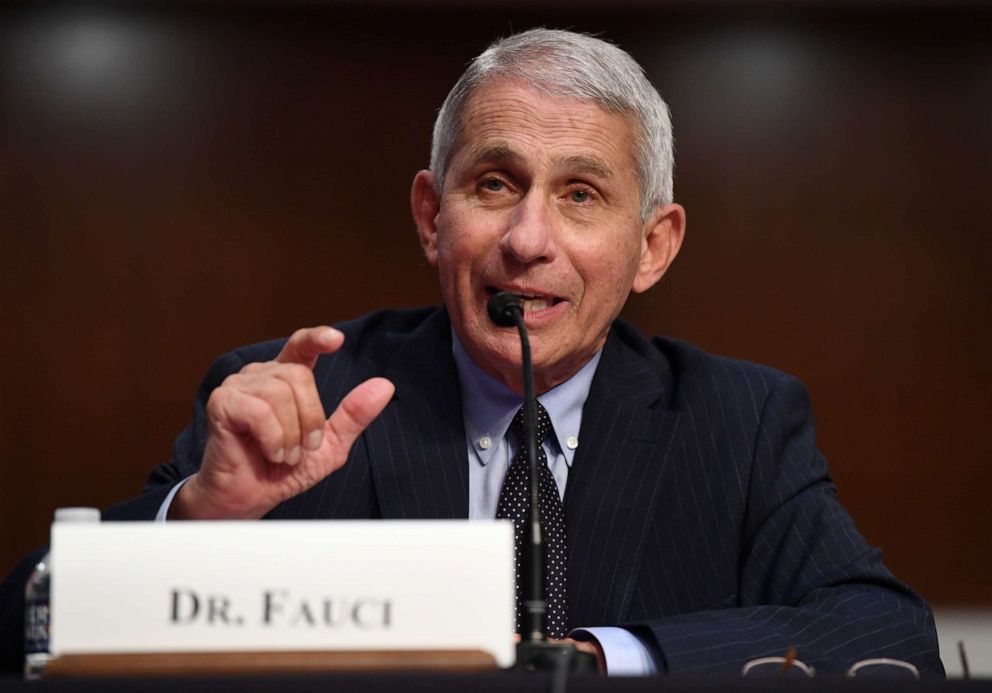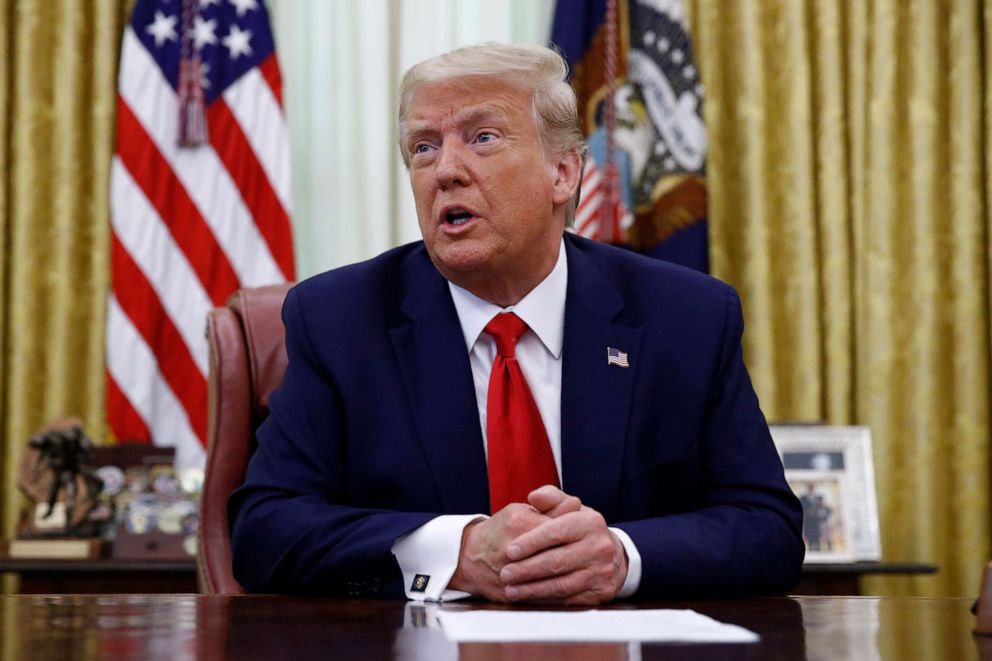White House attempts to discredit Fauci 'absolutely outrageous': Gov. Larry Hogan
He also called Trump's rhetoric around race "disgraceful."
Recent attempts to discredit Dr. Anthony Fauci as the White House struggles with the coronavirus pandemic response are "absolutely outrageous," according to Republican Maryland Gov. Larry Hogan on ABC News' 'Powerhouse Politics' podcast.
The Trump White House is being criticized by many this week after reported attempts to discredit Dr. Anthony Fauci, the director of The National Institute of Allergy and Infectious diseases and one of the leading figures in the country’s response to the coronavirus pandemic.
"I think it's absolutely outrageous. It's one of the biggest mistakes, I think, that the administration has made throughout this entire coronavirus response, because Dr. Fauci is, in my opinion, the most respected guy in the administration, and the voice of truth and reason throughout this pandemic," Hogan told ABC News’ Chief White House Correspondent Jonathan Karl and Political Director Rick Klein.

"And there's a number of mistakes that have been made, but I think sidelining him and trying to run this campaign to attack his credibility is one of their biggest mistakes so far," he added.
Fauci, in a series of recent interviews, was less than positive about the coronavirus response in recent weeks, leading to what appears to be a division between him and the White House.
Hogan also expressed his confusion with President Donald Trump’s recent rhetoric surrounding race relations and Confederate monuments. While major businesses and factions of the military are banning the display of the Confederate flag, Trump himself hasn’t denounced it, even saying this week in an interview with CBS News that "People love it."
The president is also under fire for other comments made in that interview, in which he grew defensive and claimed that "more white people" than Black people die due to police violence in this country, despite statistics showing that, based on population, Blacks are more likely to die at the hands of police.
"I think it's completely wrong. It's extremely damaging," Hogan said. "And it's the complete opposite of the message that the president ought to be sending out. It's quite frankly, disgraceful."
Hogan previewed his new book "Still Standing: Surviving Cancer, Riots, and the Toxic Politics that Divide America," which details his successful run for governor as a Republican in a Democratic state and his attempts to bridge gaps and divisiveness in his state.
"I've been one of the few Republicans that has not been afraid of standing up and speaking out when I think the president is wrong on this issue. He's completely dead wrong," Hogan said. "I just don't understand it. I really don't know where it's coming from, but it's the last thing that we need."
"I think at this time in America, as we're dealing with these raw emotions, and trying to deal with the issues of racism to have the president of the United States make inflammatory comments like that, it's just outrageous. And I think it's bad for the country, it's bad for the Republican Party and it's bad for Donald Trump," he added.

Hogan said he feels his party needs to focus on how to appeal to a larger group of people. The 2018 midterm election, he added, saw the Republican party lose ground in the House of Representatives and in legislatures across the country.
"I'm concerned that on the course that we're heading in the presidential race, with the divisive rhetoric, with the doubling down on appealing to the core of the base -- or not reaching out the way we've done here -- that we're not going to win over those swing voters, those independents, those suburban voters and college educated voters," he said.
"Those are the things that the Republican Party is going to have to figure out," Hogan added. "I don't think we're going to do that in this election, but we're going to have to take a close look regardless of what happens in November."
Hogan told Karl and Klein that his position as an executive during the pandemic is another contributing factor in why he felt writing in-depth on his experience would fare well in a book -- and that the book isn’t necessarily a sign of higher political aspirations, including for the White House, in years to come.
"Where are you on that note? I know we talked about you perhaps running in 2020. That did not happen. Are you looking ahead to a presidential campaign in 2024?" Karl asked.
"I really think it's far too early to be talking about 2024. And I honestly -- that was not the purpose of this book," Hogan said, adding he felt it was just a "good time" to publish it.
"I also had some thoughts about, you know, about where I thought my Republican Party ought to go in the future, and some thoughts about the direction of the country, and about the nature of our divisive politics in America today, which is something I've been talking about for six years."




